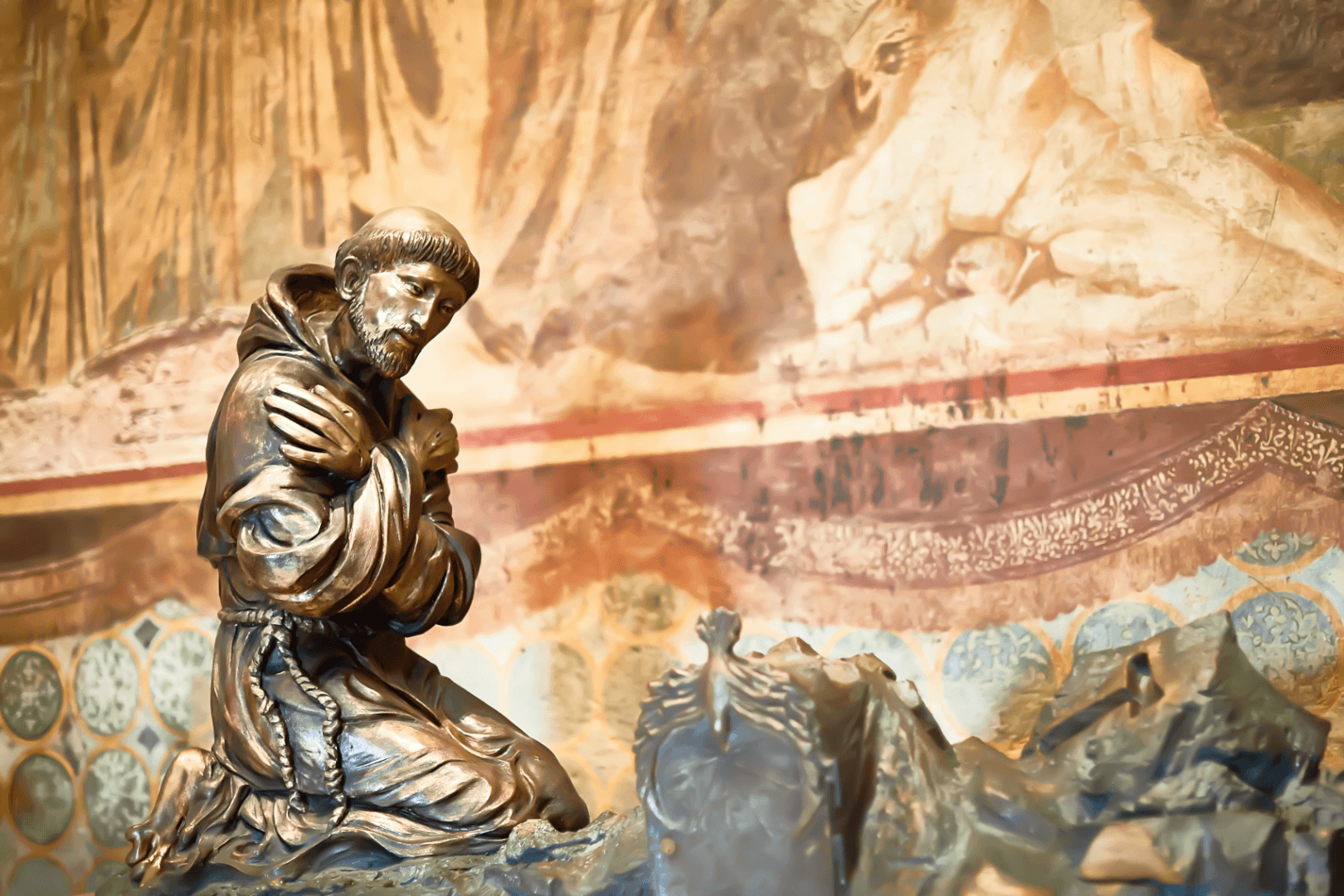Recently on air, John Morales argued that oftentimes, St. Francis is depicted as some sort of “medieval hippie” whose sole concern is the protection of nature and its creatures. While Francis is rightfully known for his connection to the outdoors, the problem is that his legendary example of commitment to personal holiness falls to the wayside.
Joining John on Morning Air was Father Benedict La Volpe to discuss who St. Francis really was and how he impacted the Church.
Father Benedict agreed with John and expressed his disappointment that so many people lack a full knowledge of the accomplishments of this great man. “He died in 1226, he was canonized in 1228, and the very first office that was written for the feast day was written by a great friar called Julian of Speyer. And for the very first Vespers, this was the antiphon that Julian wrote… ‘Francis the valiant Catholic and perfectly apostolic, did instruct us to adhere to the Faith of the Roman Church and those who were her priests, he’d urge we should most of all revere.’” He was not this hippie recluse who only talked to animals. He was a ‘valiant’ Catholic who spent his life instructing the Faithful and catalyzing the Church.
Very contrary to the hermitic loneliness that he is depicted to have lived out, Francis had many friends before his full conversion and maturation. He was a “fun-loving hooligan” as Father Benedict put it. Born into wealth, we can imagine a similar sort of pleasure-filled youth similar to that of St. Augustine. However, just like Augustine, Francis was left wanting. He sold his wealth, gave it to the poor, and went to undergo education with the bishop.
There is the amazing story of when Francis and his father had a large falling out in the piazza outside of the cathedral in Assisi and Francis denied his father’s way of life. He said that from then on he would only call the one in Heaven his “father” and he stripped off his clothes, those paid for by his father. While excessive and dramatic, Francis was making a grand gesture in the name of his conversion. He was not going into it half-hearted or just dipping his toes. He had realized the error of his ways and he wishes to change.
On time, Francis was praying in an abandoned chapel, and he heard Christ on the Cross speak to him, saying, “Rebuild my Church.” Francis, without thinking, began undertaking projects to build and rebuild physical churches around the area. After his third church, Francis realized that Jesus meant the body, the members of the Church. All of this is to say that while St. Francis is the patron saint of nature, he shouldn’t be seen as a “pantheistic icon.” He was a fiery and devoted follower of Christ who carried out the will of God at all costs and by any means.
There is nothing wrong with having a pet blessed on his feast day and there’s certainly nothing wrong with respecting creation in all of its forms. In fact, those are very good things. In Laudato Si, Pope Francis goes through the catalogue of creation and the need to observe God’s goodness in it. Creation bears a reflection of God’s love for us in it. But it would behoove us to see St. Francis for more than the “medieval hippie.” See him as an ardent defender of the Church, a role model for Catholics, and an example of holy poverty.
Listen to the full conversation below:
Tune in to Morning Air weekdays at 5am CT


